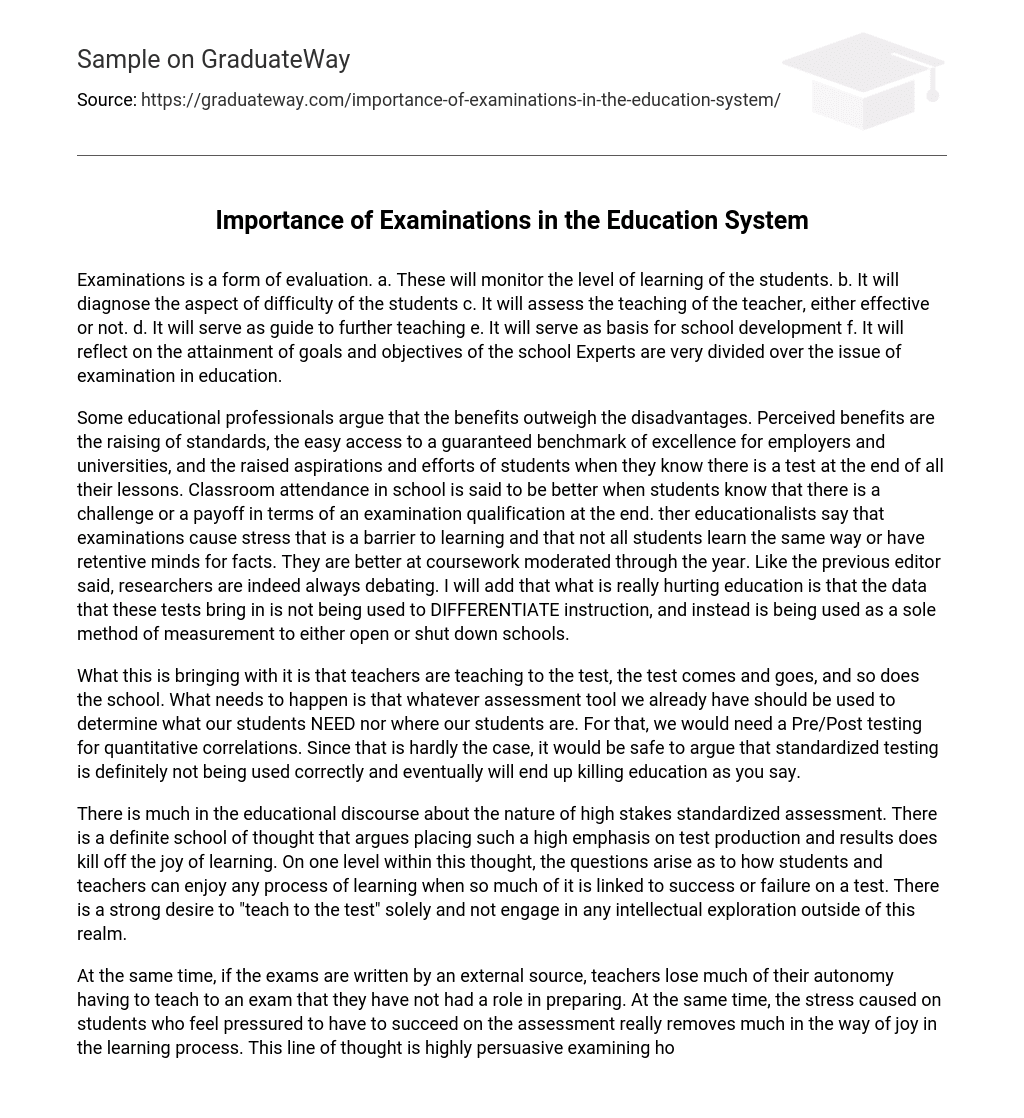These will monitor the level of learning of the students. It will diagnose the aspect of difficulty of the students. It will assess the teaching of the teacher, either effective or not. It will serve as guide to further teaching e. It will serve as basis for school development. It will reflect on the attainment of goals and objectives of the school Experts are very divided over the issue of examination in education. Some educational professionals argue that the benefits outweigh the disadvantages.
Perceived benefits are the raising of standards, the easy access to a guaranteed benchmark of excellence for employers and universities, and the raised aspirations and efforts of students when they know there is a test at the end of all their lessons. Classroom attendance in school is said to be better when students know that there is a challenge or a payoff in terms of an examination qualification at the end. ther educationalists say that examinations cause stress that is a barrier to learning and that not all students learn the same way or have retentive minds for facts. They are better at coursework moderated through the year. Like the previous editor said, researchers are indeed always debating. I will add that what is really hurting education is that the data that these tests bring in is not being used to DIFFERENTIATE instruction, and instead is being used as a sole method of measurement to either open or shut down schools.
What this is bringing with it is that teachers are teaching to the test, the test comes and goes, and so does the school. What needs to happen is that whatever assessment tool we already have should be used to determine what our students NEED nor where our students are. For that, we would need a Pre/Post testing for quantitative correlations. Since that is hardly the case, it would be safe to argue that standardized testing is definitely not being used correctly and eventually will end up killing education as you say.
There is much in the educational discourse about the nature of high stakes standardized assessment. There is a definite school of thought that argues placing such a high emphasis on test production and results does kill off the joy of learning. On one level within this thought, the questions arise as to how students and teachers can enjoy any process of learning when so much of it is linked to success or failure on a test. There is a strong desire to “teach to the test” solely and not engage in any intellectual exploration outside of this realm.
At the same time, if the exams are written by an external source, teachers lose much of their autonomy having to teach to an exam that they have not had a role in preparing. At the same time, the stress caused on students who feel pressured to have to succeed on the assessment really removes much in the way of joy in the learning process. This line of thought is highly persuasive examining how many students feel stressed to an unhealthy level during periods of high stakes standardized assessment. The short answer is yes.





